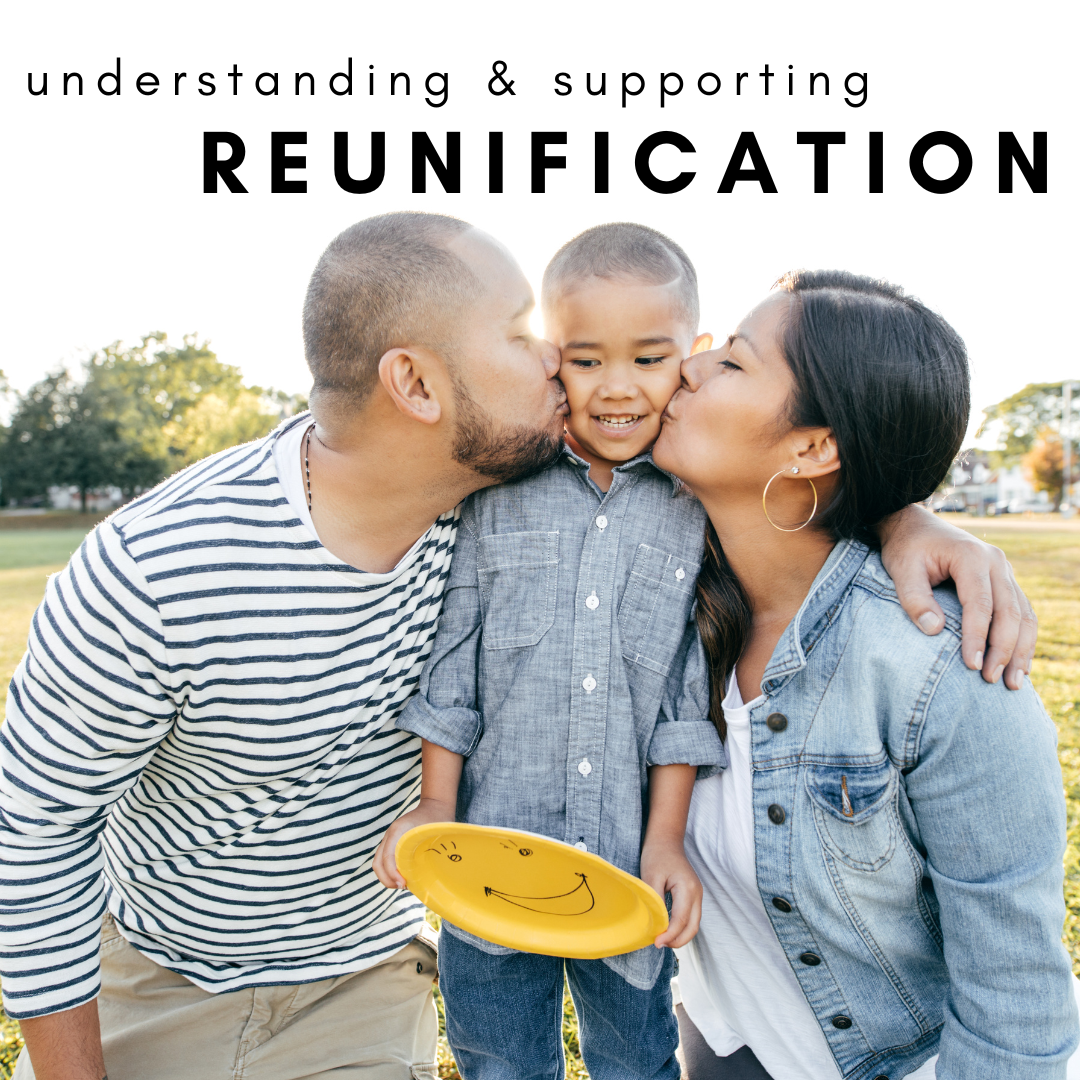The safety and well-being of children in foster care is the top priority. Contrary to what some people understand, foster care is meant to keep children safe, not to function as a penal system for parents’ failures. It offers temporary assistance for families and is predicated on the belief that parents can change.

Making Reunification a Reality
The commitment made by One Family Illinois Foster Parents goes far beyond providing love and support to children in their care; it also extends to offering it to their biological families. Even with their dedication to reunification, it’s challenging to
relinquish the children they’ve come to love.
The dedicated Foster Parents and staff at One Family Illinois provide intensive, family-centered services that include creating custom plans to help families address the circumstances that initiated the child’s placement in care and helping children develop and maintain meaningful connections with family, including returning to the family home.
One Family Illinois also develops tools to help birth parents navigate the system. For example, they’ve created a handbook to help birth parents better understand and manage the court system and Department of Children and Family Services, which can be confusing and overwhelming.
Foster Parents at One Family Illinois receive extensive training that includes several steps to pave the way for successful reunification.
- Listen Closely When Training Classes Emphasizes Reunification
Potential Foster Parents at One Family Illinois (and other organizations) and biological family members participate in extensive training that emphasizes the goal of reunification. Therefore, participants must take an active role in the training sessions and understand and trust that the family support team focuses on helping to restore the family for the safe return of their children.
- Respect the Goal of Reunification
One Family Illinois’ Foster Parents (and other foster families) pour their heart and soul into providing the best environment for the children in their care. It can sometimes be challenging when they don’t agree with every decision made in a case throughout the reunification process, but it’s critical to respect the process.
- Build Relationships With Biological Family Members
Making the biological family feel connected is a crucial part of the process. Simple gestures can help keep them in the loop. For example, sending updates about the children and participating in transportation to and from visits gives you a chance to interact.
- Be Available for Meetings and Home Visits
As an active participant in their children’s lives, your presence sends a strong signal to the biological parents of your commitment to their child and the reunification process. In addition, because you are with their children day in and day out, you can share valuable information and parenting strategies with them to help when their children return home.
- Speak Positively About the Biological Family
As Foster Parents, you play a significant role in nurturing the bond between the children in your care and their biological families. Positive conversations with the children about their birth families support the reunification process and strengthen their relationships.
Families of Color are Disproportionately Affected
Although there are many reasons children are removed from their biological families, research shows that most cases of abuse are from neglect. And in most cases, neglect is situational rather than malicious. In those cases, most families are not bad people but people with limited capacity, support, or resources who have made some poor decisions and failed to keep their children safe.
Children of color are disproportionately represented in the foster care system due to systemic inequities that impact people of color — socioeconomic deprivation, poor education, and lack of access to resources. To address these issues caused by disparities, One Family Illinois established a Racial Justice Committee to determine the best ways to work together to reunite these families.
Consider Becoming a Foster Parent
Most foster parents would agree that the work is often challenging but rewarding. However, there are many reasons to consider becoming a foster parent. As a foster parent, you can provide a safe, loving atmosphere that has the power to change a child’s life and be part of the cycle of healing that enables biological families to welcome their children home.
One thing that sets One Family Illinois apart from traditional foster care is full-time, professional Foster Parents. The One Family Illinois model places Foster Parents in single-family homes in one of its Villages, where up to six children, ranging in age from infants to young adults, call home. Find information on how you can make a difference in a child’s life and help bring families together as an One Family Illinois Foster Parent; we’d love to hear from you.